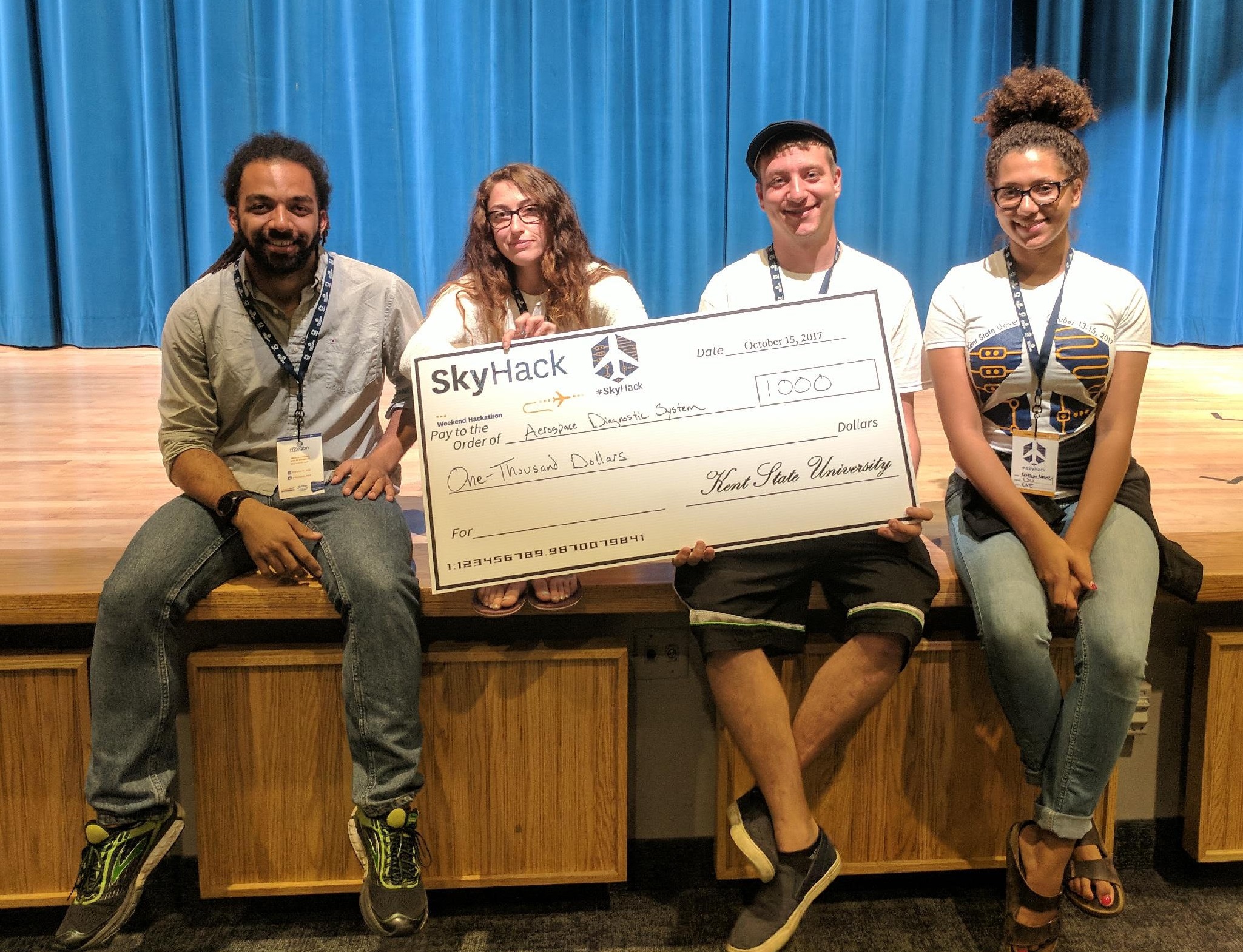Kent State’s Aviation Hackathon, SkyHack, is a one weekend competition in which students compete in teams to solve real industry problems. The competition had a grand prize of $10,000 and challenge stream prizes of $1,000. To be involved, all participants had to be 18 or older and a current student and could form a team of one to six students. The project ran from Friday, October 13th starting at 9 pm and ended Sunday October 15th at 9 am. Twenty-nine projects were submitted and nine winners awarded, one team taking home the grand prize and eight teams awarded individual stream prizes. The judging was based on technical difficulty, execution, usability, and presentation. Many teams attended from colleges in various states and some were even sponsored by companies to attend such events.
A current student in the Cleveland State’s Chemical and Biomedical Engineering Undergraduate program, Suzanne King, was a leader in one of the winning teams. Her role in the project was as Chief Engineer. Ms. King designed the process to obtain relevant test data to analyze and then applied known methods of processing that data. The team consisted of David Jordan from Kent State’s Software Engineering program; Kaitlyn Marsey from Cleveland State’s Civil Engineering program who worked on the physics and structural dynamic portions; and Ronald Simpson from Akron’s Chemical Engineering program who worked on the materials science portions. They worked on the project for 36 hours. Their team won a stream award for Aerospace Innovation and took home $1,000.
The team’s project was titled: Aerospace Diagnostics System: A sophisticated software system that gets real time data from a jet engine and puts it in a database for analysis. The system will be on board the jet liner and acquire real time diagnostic data from the jet engine. It will then parse the data effectively sorting relevant data from irrelevant data such as idling. If there is an engine alert, it would send data to control centers to discover an immediate problem. Otherwise, it will temporarily store the data on the plane and upon landing transmit the data to a global database. The global database will allow other companies access to analyze our data in order to improve the life of a jet engine.

Image (Left to right): Ronald Simpson (Akron Chemical Engineering); Suzanne King (CSU Chemical Engineering); David Jordan (Kent State Software Engineering); and Kaitlyn Marsey (CSU's Civil Engineering).
The team participated in Challenge 5. Aerospace Innovation. Click here to view a copy of the problem statement for Challenge 5.
**All information obtained via SkyHack 2017 website: https://skyhack1.devpost.com/submissions.

